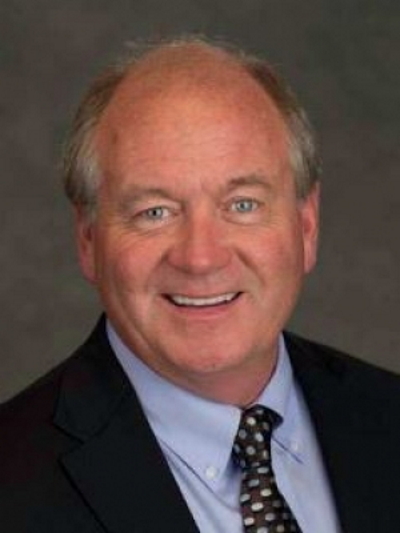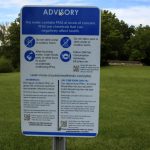Conservation Groups Cite Damage From Prehn’s Time on Natural Resources Board
Serving beyond his term limits and favoring lobbyists and PFAS polluter, critics charge.
During the 20 months that Wausau dentist Frederick Prehn refused to give up his seat on Wisconsin’s Natural Resources Board, environmental and conservation groups say he repeatedly put the interests of polluters and industry ahead of the needs of Wisconsinites.
Prehn was initially appointed to the board for a five-year term by former Republican Gov. Scott Walker in 2016. When his term expired in May 2021, he refused to give up his seat and allow Democratic Gov. Tony Evers’ appointee, Ashland educator Sandra Naas, to take his place.
Instead, Prehn said that he wouldn’t leave until his successor was confirmed by the Republican-controlled state Senate. Even though he had said his decision to stay was personal, released emails and text messages have shown he was coordinating with Republican Senate leadership, powerful lobbyists and other high profile Republican politicians to make sure he held onto his seat and kept control of the NRB in his party’s hands.
The seven-member board is responsible for setting policy for the state Department of Natural Resources, making consequential decisions on issues such as hunting, water quality and environmental rules.
Prehn held onto the seat amidst tremendous pressure from outside groups to step aside and withstood a lawsuit from Democratic Attorney General Josh Kaul seeking to force him to leave. In that suit, the Wisconsin Supreme Court decided, by a 4-3 vote, that a government appointee whose term has expired but whose replacement hasn’t yet been confirmed can remain in office indefinitely — giving the Republican majority in the Senate near unlimited power to prevent a Democratic governor from installing appointees.
But late last month, Prehn announced his resignation.
“It is time for the state legislators to act on Governor Evers’ nomination as soon as practical and it is now time for me to move on,” Prehn wrote in his resignation letter.
“I think one thing we have to look at is that in Wisconsin gerrymandering has systemically disenfranchised many voters and citizens in our state, particularly residents of urban communities, given our political and demographic geography,” Tony Wilkin Gibart, executive director of Midwest Environmental Advocates, says. “That means many communities of color have been disenfranchised. One of the ways those communities can exercise their power is in their vote for governor. In coordinating with the Legislature to prevent Gov. Evers from being able to seat his appointees to the NRB, Fred Prehn brought that systemic disenfranchisement to the Natural Resources Board.”
Several conservationists pointed to the same vote, one Prehn took last year, as one of the most harmful outcomes of his refusal to leave.
In February 2022, Prehn and the other Republican-appointed members of the board refused to approve a limit for certain types of PFAS pollution in the state’s groundwater. While the board did set limits for drinking and surface waters, the decision against groundwater limits could potentially leave the millions of Wisconsinites who get their drinking water from private wells without any recourse if their well is contaminated.
Communities across Wisconsin have discovered PFAS pollution in their groundwater. PFAS, a family of man-made compounds known as “forever chemicals” have been found to cause cancer and can be found in certain types of firefighting foam as well as household goods such as non-stick pans.
In blocking groundwater protections for PFAS in Wisconsin, Prehn “clearly wanted to be and was the deciding vote on that matter,” Gibart says. “And in doing so, listened to the interests of Wisconsin Manufacturers and Commerce and PFAS polluters over Wisconsin residents who spoke out for clean water. There’s a real tangible impact to his power play.”
In addition to refusing to set a limit on groundwater contamination, the board also turned away DNR-written rules to regulate the presence of other harmful contaminants in the state’s water, including pesticides, metal and other contaminants.
That decision was “lost in the shuffle” in the public controversy over the PFAS-groundwater decision, says Scott Laeser, the water program director for Clean Wisconsin. “That was a rule the DNR had worked on for years and that had just gotten squashed. The attention went to the PFAS part of that.”
Time and again, people focused on protecting the state’s water lamented the appearance that Prehn and the board put the interests of lobbying groups such as Wisconsin Manufacturers and Commerce, the state’s largest business lobby, and polluting industries ahead of public safety and the opinions of DNR staff.
“All the work that was done on that rule was essentially wasted when the department chose to pull the rule back because it was clear the NRB was not going to support it,” Clark says. “[It’s] another case where citizens around the state whose health is threatened are seeing no relief from the state of Wisconsin on how to manage this crisis.”
Clark says the repeated dismissal of agency expertise and hard work was especially demoralizing to DNR staff.
“I think the NRB members also seemed to often put more weight on the opinion of private lobbyists and attorneys for WMC than they did their own staff attorneys or staff experts of the department they run,” Clark says. The fact that “public officials who are leaders of the agency don’t believe their own agency staff is just incredibly demoralizing for the people in the department.”
Conservation groups lament policy damage of Prehn’s extra time on Natural Resources Board was originally published by the Wisconsin Examiner.
More about the PFAS Problem
- Environmental Groups, Community Advocates Push for PFAS Deal - Henry Redman - Jul 14th, 2025
- Environmental Advocates Hail Wisconsin Supreme Court Decision in Evers v Marklein - Midwest Environmental Advocates - Jul 8th, 2025
- Wisconsin Supreme Court Backs State Regulators of PFAS Pollution - Danielle Kaeding and Rich Kremer - Jun 24th, 2025
- Gov. Evers Releases Statement on Wisconsin Supreme Court Decision in WMC Inc v. DNR - Gov. Tony Evers - Jun 24th, 2025
- Rep. Shelia Stubbs Elected Great Lakes-St. Lawrence Legislative Caucus Vice Chair of the Task Force on Emerging Contaminants - State Rep. Shelia Stubbs - Jun 16th, 2025
- Legislature’s Budget Committee Unanimously Boosts Clean Water Funding By $732 Million - Danielle Kaeding - Jun 6th, 2025
- Trump Administration moves to weaken standards for toxic ‘forever chemicals’ in drinking water - Clean Wisconsin - May 14th, 2025
- Wisconsin Officials Unhappy With EPA Plan To Weaken PFAS Standards - Danielle Kaeding - May 14th, 2025
- Wisconsin Could Lose $55 Million Under Proposed EPA Budget Cuts - Danielle Kaeding - May 7th, 2025
- French Island Makes Progress on PFAS Pollution - Richelle Wilson and Trevor Hook - Mar 24th, 2025
Read more about PFAS Problem here























Cronies a republican value.
Because of an ego-maniacal, north woods, political hack, “communities across Wisconsin have discovered PFAS pollution in their groundwater. PFAS, a family of man-made compounds known as “forever chemicals” have been found to cause cancer.”
This and other political and social events underscore the significance of the forthcoming supreme court election.
I hope people sue Prehn.